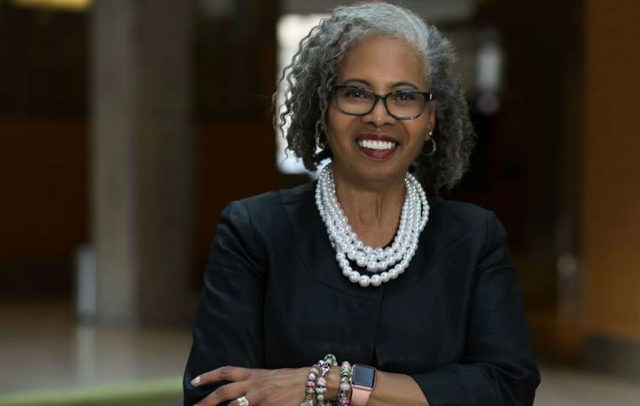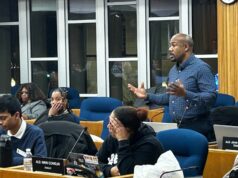UW–Madison professor emerita and Madison365 contributor Gloria Ladson-Billings is the nation’s second-most influential scholar in education, according to the annual Edu-Scholar Public Influence Rankings, which spotlight top education scholars across the nation “who move ideas from academic journals into the national conversation,” according to an announcement from the School of Education.
The Edu-Scholar Public Influence Rankings are compiled by Frederick Hess, an Education Week blogger who is the American Enterprise Institute’s director of education policy studies. Hess’s rankings utilize a scoring rubric to calculate how much university-based academics contributed to public discussions of education. In addition to Ladson-Billings, two other scholars with UW–Madison are also ranked: Adam Gamoran is No. 107 and Jerlando Jackson No. 174.
These rankings reflect the influence of a scholar’s academic scholarship and their influence on public debate as reflected in old and new media. The rankings employ nine publicly available metrics: Google Scholar, book points, highest Amazon ranking, syllabus points, education press mentions, web mentions, newspaper mentions, congressional record mentions, and Twitter score.
Given that there are well over 20,000 university-based faculty tackling educational questions in the U.S., it’s a considerable accomplishment to be ranked in the top 200, Hess wrote.
Ladson-Billings is a professor emerita with the School of Education and the former Kellner Family Distinguished Chair in Urban Education with the Department of Curriculum and Instruction. Her research examines the cultural foundations of teaching and learning that leads to educational improvement for students who are most marginalized in schools. She also investigates critical race theory applications to education. This past fall, she completed a four-year term as president of the National Academy of Education.

Jackson is chair of the School of Education’s Department of Educational Leadership and Policy Analysis, and concurrently holds the Rupple-Bascom Professor of Education and the Vilas Distinguished Professor of Higher Education. He also is the director and chief research scientist of Wisconsin’s Equity and Inclusion Laboratory (Wei LAB).Gamoran is a professor emeritus with the School of Education’s Department of Educational Policy Studies and the former director of the Wisconsin Center for Education Research. He currently is president of the William T. Grant Foundation.
“One small way to encourage academics to step into the fray and revisit academic norms is, I think, by doing more to recognize and value those scholars who engage in public discourse,” Hess said. “As I see it, the extraordinary policy scholar excels in five areas: disciplinary scholarship, policy analysis and popular writing, convening and shepherding collaborations, providing incisive media commentary, and speaking in the public square. This whole endeavor is admittedly an imperfect exercise. Of course, the same can be said about college rankings, NFL quarterback ratings, or international scorecards of human rights. Yet such efforts convey real information and help spark useful discussion.”


































